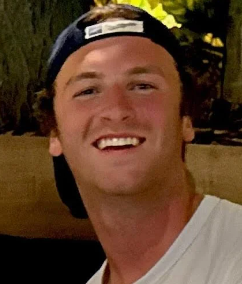
 October 20, 2016 Press Contacts Laura Green Communications Manager 202.314.1783 [email protected] Museum Press Kit UNITED...
October 20, 2016 Press Contacts Laura Green Communications Manager 202.314.1783 [email protected] Museum Press Kit UNITED...
October 20, 2016
UNITED STATES HOLOCAUST MEMORIAL MUSEUM REPORT WARNS: COMMUNITIES AT RISK DURING AND AFTER MOSUL CAMPAIGN
New Report Documents Urgent Need to Protect Religious Minorities and Address Long-Term Risk of Future Sectarian Violence in Northern Iraq
WASHINGTON – Communities at risk in northern Iraq face potential future atrocities during and after the campaign to clear the Islamic State (IS) from Mosul and surrounding areas, according to a new report by the Simon-Skjodt Center for the Prevention of Genocide of the United States Holocaust Memorial Museum. The report, “Communities At Risk: Protecting Civilians in the Fight Against the Islamic State” outlines that civilian protection strategies must be at the forefront of planning and strategic decision-making or the region could descend into deeper sectarian violence and reprisal attacks. The new report lays out a series of policy options for national, regional, and international authorities to inform the ongoing response to these risks.
“Protecting religious minorities and other civilians must be central to overall efforts to clear IS from Ninewa,” said Naomi Kikoler, Deputy Director of the Simon-Skjodt Center for the Prevention of Genocide. “The way we fight IS and address the political administration and security gaps in Mosul and Ninewa more broadly afterwards will determine whether we see mass atrocities again.”
The Museum’s report, based on field research done in northern Iraq in May, 2016, outlines a number of immediate risks facing targeted groups in the region including:
- Continued violence perpetrated by IS, including ongoing genocide against Yezidi women and children still being held captive;
- Violence occurring during the military offensive to drive IS from Mosul and surrounding towns;
- The risk of future extremism by possible successors to IS;
- The proliferation of under- and un-regulated religious- and sect-specific militias;
- Revenge killings of primarily Sunni Arabs perceived as collaborating with IS committed by forces fighting IS and those returning home.
In March 2016, US Secretary of State John Kerry determined that IS had perpetrated genocide against minorities in Ninewa province, including Yezidis, Christians, Shia Shabak, Shia Turkmen, Sabean-Mandaean’s and Kaka’i. IS killed or kidnapped thousands and drove hundreds of thousands of people from their homes in the summer of 2014, and into exile in the Kurdistan Region of Iraq. Today, IS continues to perpetrate genocide against an estimated 3,200 Yezidi women and children that it still holds.
“Protecting at-risk communities while undertaking a military offensive is incredibly challenging but must be a top priority for this campaign, particularly due to the ongoing genocide perpetrated by IS against the Yezidi,” said Cameron Hudson, Director of the Simon-Skjodt Center for the Prevention of Genocide. “The risks are high, but so are the consequences of failing to protect civilians in terms of lives lost and the potential to ignite future conflict.”
The Museum’s report warns that preventing future atrocities in the immediate Mosul campaign and over the long-term in northern Iraq requires efforts by the international community to ensure:
- physical security for all people living in Ninewa, including during the ongoing campaign to retake Mosul;
- stabilization, reconstruction and reconciliation to address existing societal fissures and the long-term drivers of new violence;
- justice and accountability for the thousands of victims of Islamic State violence in northern Iraq;
- political resolution over disputed areas between the Iraqi government and the Kurdish Regional Government.
This report from Simon-Skjodt Center for the Prevention of Genocide follows an earlier report, “Our Generation is Gone: The Islamic State’s Targeting of Iraqi Minorities in Ninewa,” released in November, 2015, that first documented IS’ atrocities against religious minorities, terming them genocide. Since that time, the United Nations, United States, and European Union have made similar declarations of genocide.
###
The United States Holocaust Memorial Museum’s work on genocide and related crimes against humanity is conducted by the Simon-Skjodt Center for the Prevention of Genocide. The Simon-Skjodt Center is dedicated to stimulating timely global action to prevent genocide and to catalyze an international response when it occurs. Our goal is to make the prevention of genocide a core foreign policy priority for leaders around the world through a multipronged program of research, education, and public outreach. We work to equip decision makers, starting with officials in the United States but also extending to other governments and institutions, with the knowledge, tools and institutional support required to prevent – or if necessary, halt – genocide and related crimes against humanity.
The United States Holocaust Memorial Museum, a living memorial to the Holocaust, inspires citizens and leaders to confront hatred, promote human dignity and prevent genocide. Federal support guarantees the Museum’s permanence, and its far-reaching educational programs and global impact are made possible by donors nationwide.
Tags:
Content from United States Holocaust Memorial Museum
Originally published at https://www.ushmm.org/information/press/press-releases/museum-report-warns-of-communities-at-risk-in-mosul
originally published at HUMAN RIGHTS - USA DAILY NEWS 24

